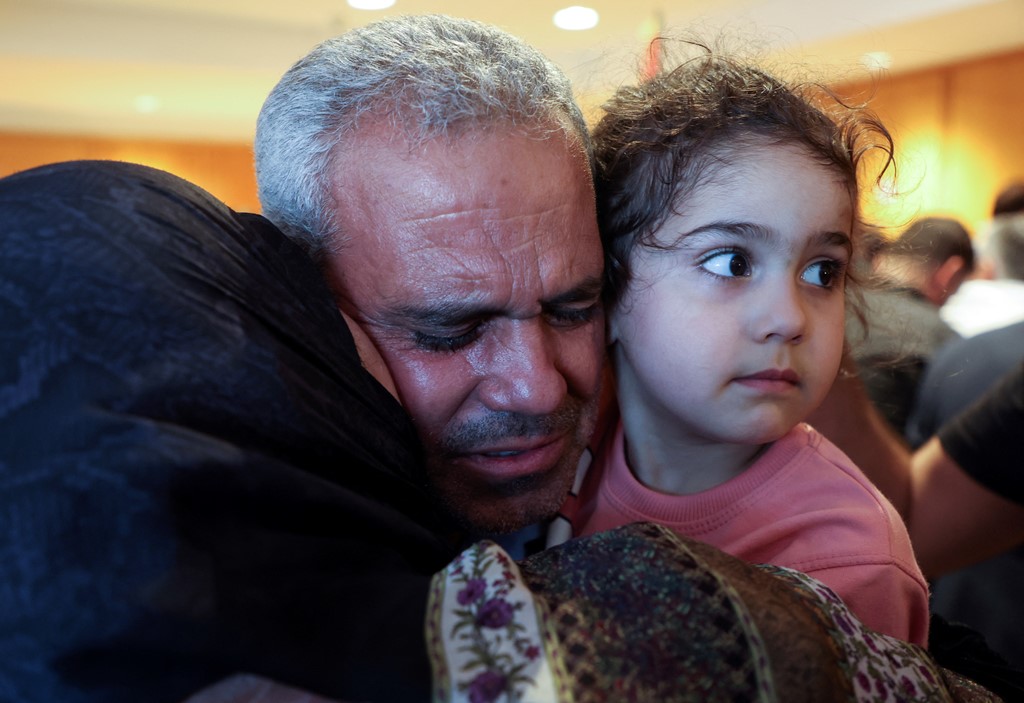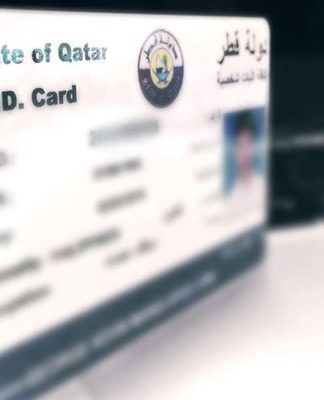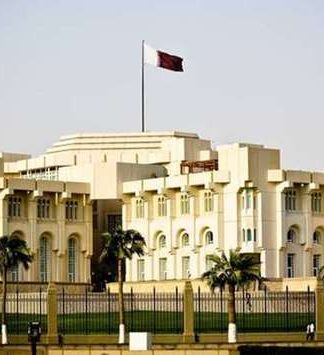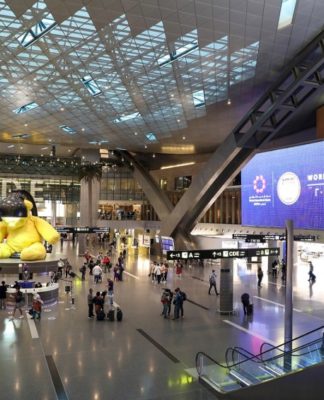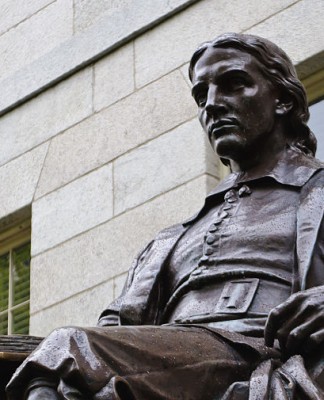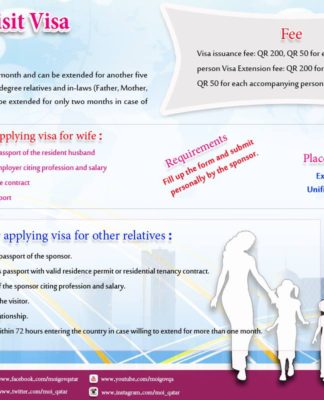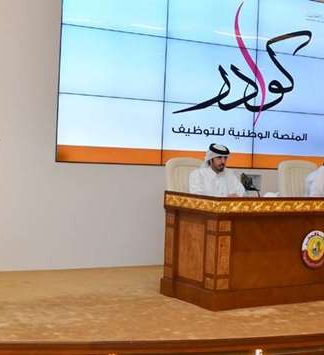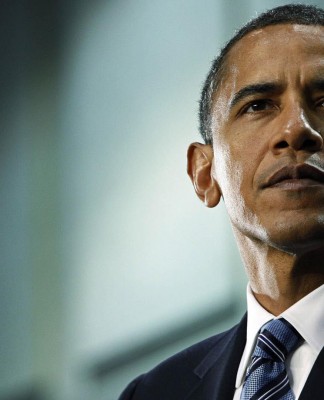Live
Sudan live updates: RAF sent for evacuation; ‘children with AK-47s’ among obstacles; ‘high risk’ as measles and cholera lab seized
An RAF flight is collecting the first British passport holders from Sudan – but the UK has come in for criticism for responding too slowly compared with other nations. There is now a 72-hour evacuation window while a precarious ceasefire between rival factions is in place.
Tuesday 25 April 2023 16:09, UK
LIVE
Sudan
Watch Sky News live for updates on this and other stories
Why you can trust Sky News
Key points
Race against time as UK evacuation effort begins View post
Why evacuating civilians is significantly harder than diplomats View post
Too little, too late for some | Yousra Elbagir View post
What is RAF doing and what could happen? View post | Deborah Haynes
Sudan’s rival factions agree to 72-hour ceasefire View post
‘High risk’ as measles and cholera lab seized View post
Watch: Devastation on streets of Khartoum View post
‘A 14-year-old with an AK-47 is a very dangerous individual’ | Michael Clarke View post
Share your story: Are you in Sudan? Get in touch with us View post
Live reporting by Guy Birchall and Brad Young
Sort by:
LatestSort by latest OldestSort by oldest
Now
11:09
First flight evacuating British nationals leaves Sudan
The first flight carrying UK nationals has left Sudan en route to Cyprus.
The number of people aboard has not been confirmed. Two more flights are expected overnight.
France and Germany began flights out yesterday morning, but UK planes didn’t arrive until today.
A UK government spokesperson said the government was examining alternative evacuation routes including the Port of Sudan.
Copy link
1m ago
11:07
‘Catastrophic’ humanitarian situation on the horizon
Hospitals in Khartoum are “quickly running out” of food, water, first aid and beds, according to the British Red Cross.
Staff are facing electricity cuts and lack enough stretchers and generator fuel, they said.
The humanitarian situation in the country was “desperate” even before the conflict and the situation “will become catastrophic”, said Sam Turner, head of the east and southern African regions for the charity.
His comments come as the UN warns of “acute” food and water shortages in the capital, with prices doubling and cash scarce.
Before fighting broke out on April 15, one-third of Sudan’s 46 million people relied on humanitarian assistance, and many of those providing aid have reduced operations since, such as the UN humanitarian office.
“We expect the humanitarian need will only grow in the coming days and weeks, including in neighbouring countries as people flee their homes to seek safety,” said Mr Turner.
Copy link
34m ago
10:34
First Greek rescue plane touches down
The military aircraft landed in Elefsina, near Athens, successfully evacuating 17 people.
Among them was one injured person who underwent surgery at a French military hospital, Greek authorities said.
Deputy foreign affairs minister Andreas Katsaniotis was on the tarmac for their arrival.
“We will do whatever is necessary so that all Greeks can safely return home”, he said.
Copy link
53m ago
10:15
Evacuation is ‘not a competition’, says former minister defending government strategy
Over the course of the day we’ve heard the UK government accused of being too slow to evacuate British passport holders.
But a former Conservative minister for the Middle East and North Africa has told Sky News he thinks the approach was “sensible”.
Alistair Burt said it was the “right thing” to wait for a ceasefire, given how hazardous the fighting was.
He said it “is not a competition” between nations to evacuate their citizens and that “terrible risks” must be considered in any evacuation plan from a conflict zone.
Appearing to refer to media reports of Britons feeling trapped in Sudan, he said “always the worry is the lack of information” and there are always people who have not been contacted by their government.
Turning to the ceasefire itself, he said it is “not in anyone’s interest” for it to collapse, but it is difficult to negotiate when armed forces are not easily centrally controlled and commanded.
Copy link
Advertisement
1h ago
10:00
Paramilitary accuses army of violating ceasefire
Following on from our last post, the paramilitary RSF has accused the Sudanese army of violating the ceasefire.
“Plane attacks” have been launched on Khartoum in a “clear breach” of the agreement, the RSF said in a statement.
The group put the alleged aerial assaults down to “the existence of multiple decision-making centres” within the army.
“Cannons” were fired at the RSF headquarters in the capital, “endangering the lives of civilians”, it added in a separate statement.
It said: “The breach of the ceasefire by the Sudanese army is undeniable evidence of their thirst for war and Sudanese bloodshed, which must come to an end.”
To “alleviate the suffering of innocent civilians”, the Sudanese army must respect the ceasefire, the RSF said.
It called on the international community to intervene and put pressure on the army to abide by the truce.
Sky News cannot independently verify the RSF’s claims.
For context: Following two days of intense negotiations, the Sudanese Armed Forces and the Rapid Support Forces agreed to implement a 72-hour ceasefire which came into force at midnight.
In 2019, these two factions had come together to oust former leader Omar al Bashir but there have been long-running disagreements over how the country should be run.
The recent violence erupted out of tensions over the transition from military to civilian rule.
Copy link
1h ago
09:50
‘Unimaginable’ fighting continues outside Khartoum despite ceasefire
Despite the agreed ceasefire, fighting has continued outside the capital, according to reports.
In places, including in Omdurman, a city across the Nile from Khartoum, there were clashes early this morning around the state television headquarters and military bases just outside the city.
Resident Amin Ishaq said: “They stop only when they run out of ammunition.”
Clashes also escalated in West Darfur province, with armed groups, wearing RSF uniforms, attacking several areas in Genena, the provincial capital, burning and looting properties and camps for displaced people.
“Fierce battles are raging all over the city,” said a doctor in Genena, who asked to remain anonymous.
“All eyes are on Khartoum but the situation here is unimaginable.”
In Genena’s centre, women and children were fleeing homes and the city’s main hospital has not functioned for days, with unknown numbers of dead and wounded, she added.
In Khartoum, bus stations were packed this morning with people who had spent the night there in the hope of getting on a departing bus.
Drivers hiked prices, sometimes tenfold, for routes to the border crossing with Egypt or the eastern Red Sea city of Port Sudan.
Fuel prices have rocketed to £54-a-gallon from just over £3 and prices of food and water have doubled, according to the Norwegian Refugee Council .
Copy link
1h ago
09:36
UK Border Force team up and running in Khartoum
Defence Secretary Ben Wallace is currently being asked about British evacuation efforts in Sudan.
He says there are about 120 British military personnel based at the airfield near the capital Khartoum to assist with the evacuation.
“As of 11am this morning the processing centre, the reception team of Border Force and Foreign Office, were up and running on the airfield in Sudan,” he said.
“We now have approximately 120 British forces at the airfield supporting the delivery of the evacuation of nationals and dual nationals through the airport.”
Currently the airfield is run by the German military, he says – but the UK “stands ready” to take over if the Germans leave.
Mr Wallace is asked by the chair of the Defence Committee, Tobias Ellwood, how quickly the UK can begin evacuating more UK nationals and their family members.
He says this will happen “if and when the Germans leave”.
“The Germans are running the airfield at the moment. They are responding to the flow of their citizens and their nationals,” he adds.
And asked whether dual nationals as well as mono nationals are being invited by the Foreign Office to come to the airport, he says “where possible to communicate because the communications are very patchy and very small”.
Copy link
1h ago
09:32
More nations evacuate citizens – but no pictures yet to show for RAF’s efforts
We know the RAF is now working to evacuate stranded Britons – but other countries seem well ahead of the UK.
The Reuters photographs below show Lebanese citizens arriving home.
The first sees Ali Mazloum being welcomed by family…
And here Abbas Ghaddar carries his son upon his arrival at Beirut airport…
Copy link
1h ago
09:17
Are you in Sudan? Share your story with Sky News
If you are currently in Sudan, trying to leave or have friends and family who are there, you can contact us to tell us what’s happening.
You can share your story with us here:
Your Report on Sky News apps
WhatsApp
Email
By sending us your video footage, photographs or audio you agree we can publish, broadcast and edit the material.
Copy link
1h ago
09:10
‘High risk of biological hazard’ as measles and cholera lab seized
More details have emerged on the “hazardous” seizure of a biological laboratory in Khartoum.
Earlier today, we reported how one of the warring parties took control of the National Public Health Laboratory, which the World Health Organisation said presented a “high risk of biological hazard”.
Now WHO representative Nima Saeed Abid has explained why: the lab contains measles and cholera pathogens, and technicians have no access to ensure the biological material is safely contained.
He declined to specify whether the Sudanese army or the RSF had seized the lab.
Copy link
2h ago
08:57
‘A 14-year-old with an AK-47 is a very dangerous individual’
Defence and security analyst Professor Michael Clarke has said there are reports of child soldiers on the streets as part of the Rapid Support Force rebels, providing an insight into just how dangerous the situation on the ground in Sudan is for civilians.
“A 13 or 14-year-old with an AK-47 who thinks he’s a big shot is a very dangerous individual.
“So just getting a family to the airfield, or anywhere, in this situation is very dangerous,” he said.
Discussing the logistics once civilians had made it to the airfield, he explained the difficulty was simply the amount of people.
“The Hercules C-130 takes about 90 troops so if you cram people in a bit more you could get around 120 or 130 in.
“But it isn’t just a question of numbers, its a question of weight, a safe take off weight and safe landing weight.
“With the Atlas A400M, you could get around 120 soldiers in there so you could get around 150 civilians in that aircraft.
“But if there are 2,000 to 3,000 people who need evacuating, how many shuttles back and forth from Cyprus is that? Quite a lot.”
Copy link
2h ago
08:24
UK government tweets advice for Britons in Sudan
This is what they’ve put out for the 4,000 or so British passport holders this lunchtime…
Copy link
2h ago
08:21
France have evacuated more than 500 people since last night
French forces have managed to get a total of 538 people out of Sudan since last night.
Of that number, 209 are French nationals, with the rest hailing from 41 other countries including the UK.
France are operating out of an airstrip north of Khartoum and taking evacuees to Djibouti where they have a military base.
They have also helped transfer a large number of people from Khartoum to the airfield who were subsequently evacuated by air assets from other European nations.
The French navy has also sent a frigate to assist the UN, which is coordinating the evacuation operation from Port Sudan.
Copy link
3h ago
08:05
‘We are in early stages’: Downing Street non-committal on resettling people seeking asylum from Sudan
Downing Street has said the UK’s principle is that those in need should claim asylum in the first safe country they come to, when asked if the UK would considering a bespoke refugee scheme for those seeking asylum from Sudan.
The Home Office is watching the situation in Sudan to ensure the UK has an “appropriate response” to crisis.
The prime minister’s official spokesperson said: “The Home Office as you’d expect are monitoring the situation closely to make sure we have an appropriate response.
“We have the current resettlement scheme which allows us to support the most vulnerable refugees direct from regions of conflict and instability.
“It’s our long standing principle obviously that those in need of protection should claim asylum in the first safe country they reach and certainly the experience of of these situations is often people choose to stay in the region or in a neighbouring country as is their choice, so I don’t have anything more on beyond that at the moment.
“Obviously we are in early stages.”
Copy link
3h ago
07:52
British forces preparing for the evacuation
The Ministry of Defence has released images of British forces preparing to depart RAF Akrotiri in Cyprus for Sudan.
More than 1,200 military personnel are involved in the effort to extricate the thousands of UK citizens still in Sudan.
The pictures show members of 40 Commando Brigade and the Joint Force Head Quarters receiving their early morning briefs, and departing on C-130 Hercules aircraft.
The MoD said in a statement: “The armed forces conducted this complex operation under extremely challenging circumstances and their bravery and courage is commended.”
Copy link
3h ago
07:40
The UK operation: What is happening, and what could happen?
Analysis by Deborah Haynes, security and defence editor
The UK government is giving priority to the most vulnerable – children, the elderly, the sick and the wounded. But these are the people who will find it hardest to make the journey to the airfield north of the capital Khartoum.
There is the option for British forces to enter the city and help extract people, but this would be an incredibly high-risk move – putting armed British troops into an active combat zone.
A group of elite British soldiers inserted themselves into the capital late on Saturday night to rescue the British diplomats. They successfully drove them to the airfield.
However, a team of French special forces, conducting the same kind of operation for their diplomats, came under fire as they left the French embassy, with one soldier wounded.
Efforts will also need to be taken to avoid a mad scramble by the many other residents of Khartoum who also want to flee.
The UK will surely be mindful of the horrendous scenes outside Kabul airport in Afghanistan in the summer of 2021 when thousands of desperate Afghans gathered outside the gates – trying to force their way onto international evacuation flights.
The situation in Sudan is very different and the airfield is outside the city so access to it will probably be easier to control.
16 Air Assault Brigade, the Royal Marines and the RAF are involved in the evacuation effort. 16 Air Assault Brigade is the army’s highest readiness unit of airborne combat troops. Their job is to be permanently on standby to mobilise in a crisis. Soldiers from this brigade led the Kabul evacuation.
But in Sudan there is the logistical challenge. Unlike the US and France, the UK does not have a military base in the region.
Instead, the armed forces are operating out of RAF Akrotiri, a Royal Air Force base in Cyprus, more than 1,200 miles from Khartoum.
The UK will be using its C-130 Hercules transport plane – a much-cherished and reliable aircraft, perfect for operating in austere and dangerous environments but which is going out of service next month to save money – and the newer Airbus A400M for the airlifts. All military aircraft are prone to technical issues so this will be something the RAF and its engineers will be working hard to prevent.
Another option for the UK is to transport British nationals by ship from a port in the east of the country. A team of soldiers flew into Port Sudan on Monday on a reconnaissance mission and a Royal Navy frigate, HMS Lancaster, is in the region and ready to move forward if needed to assist.
However, British nationals will need to make the more-than-500 mile journey from Khartoum to the Red Sea port. It’s a route that takes 13 hours in normal times by car but is now thought to take up to 40 hours because of checkpoints, congestion and – most critically – the need to source petrol along the way.
Copy link
3h ago
07:24
Devastation on the streets of Khartoum
The streets of the Sudanese capital have been left looking like something out of a disaster movie by the intense fighting.
Desolate roads littered with rubble are flanked by scorched, windowless buildings.
People wandering the streets were seen carrying supplies either by hand or some in wheelbarrows.
Copy link
4h ago
07:04
The planes are on the way – but the challenge for stranded Britons is getting to the airstrip
Analysis by Deborah Haynes, security and defence editor
There are two main risks for the UK’s mission to evacuate thousands of British passport holders out of Sudan: the fighting and the logistics.
The two-warring factions in the country have agreed a three-day ceasefire but previous truces have faltered, meaning the capital, Khartoum, remains incredibly volatile and dangerous.
The UK will be operating from a Sudanese military airfield to the north of the city – the same one that was used to rescue British diplomats and their families over the weekend. The French armed forces are understood to have helped secure the Wadi Seidna airstrip and have been using it to rescue their people and other EU nationals as well.
Despite being in a relatively safe location, there are still threats.
The Royal Air Force transport planes – a C-130 Hercules and an Airbus A400M – are still entering the airspace of a conflict zone, which means potential exposure to gunfire or even missiles.
The UK, France and other foreign nations conducting evacuations are not engaged in the fighting so should not be targeted. But there is always the possibility of a mistake, a miscalculation or a deliberate attack given the chaos and unpredictably on the ground.
The biggest danger, though, will be for the British nationals who must make their own way from their homes in Khartoum to the airfield, about 20 miles away.
The city has been a warzone for almost two weeks. Hundreds of people have died.
Checkpoints fill the streets, with rival soldiers and paramilitaries in different sections.
The two generals at the heart of the fighting may have agreed to a temporary ceasefire but if that instruction has yet to filter down to all the young, armed men on the ground, there could yet be fighting. Navigating checkpoints even during a fragile truce will be perilous.
Copy link
4h ago
06:44
Britons trapped in Khartoum must be asking: ‘Why have we been left?’
A Briton who escaped Sudan aboard a French flight has joined the chorus of criticism for the UK government for taking too long to get people out of the country.
Jonathan Waterhouse told Sky News: “This war was getting more and more intense.
“It was like someone turning the volume knob up. Literally everyday it went up another notch, another notch, another notch.”
He said that he had “front view perspective” of the war unfolding from the window of his apartment, adding: “By now its six or seven days into the conflict and you’re thinking: ‘Come on. Come on. What’s our government going to do for us?’
“The same message comes through: ‘Sit tight. Sit tight. Sit tight.’
“Those Brits trapped in Khartoum, they must be asking themselves: ‘Why have we been left?'”














